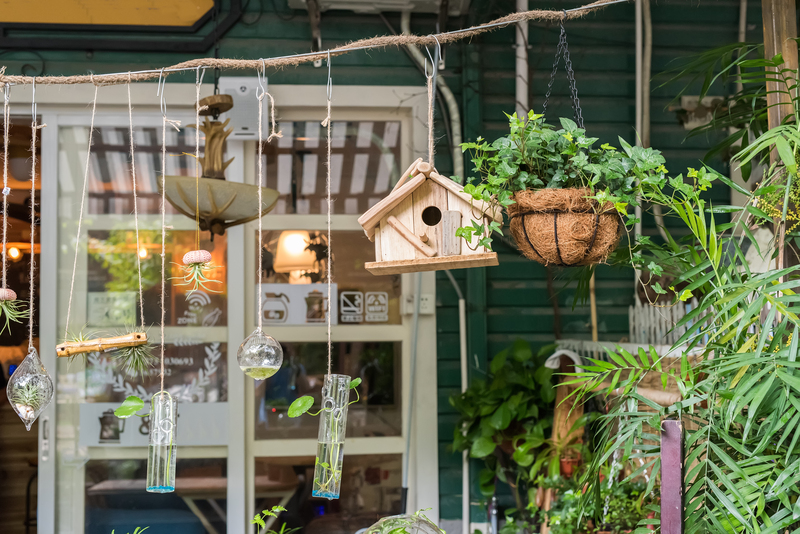Money-Saving Advice for Getting Rid of Bulky Waste Items
If you've ever tried dealing with bulky waste items -- such as old furniture, mattresses, large appliances, or garden debris -- you know that it can be both physically and financially challenging. Fortunately, there are cost-effective and eco-friendly solutions for disposing of large unwanted items without breaking the bank. This comprehensive guide provides money-saving advice for getting rid of bulky waste, highlighting various methods, resources, and tips to help you minimize costs and even boost your environmental credentials.
Understanding Bulky Waste and Its Challenges
Bulky waste items, also known as large junk items, refer to any household or commercial waste that is too large for regular curbside collection. Examples include:
- Furniture (sofas, wardrobes, beds)
- Appliances (fridges, washing machines, freezers)
- Mattresses and bed frames
- Carpets and rugs
- Garden waste (branches, large bags of soil, tree trunks, old sheds)
- Old electronics and computer equipment
Getting rid of these items typically requires extra planning, effort, and money. Common challenges include:
- High disposal or collection fees
- Limited access to transportation
- Time constraints
- Environmental impacts of landfill disposal
- Local authority restrictions or limited collections

Best Money-Saving Tips for Bulky Waste Disposal
With a little research and creativity, you can significantly reduce the costs of bulky waste removal. Here's how:
1. Check Your Local Council's Bulky Waste Collection Scheme
Many local councils provide bulky item collection services at reduced rates -- or even for free -- for residents. Always contact your local authority first to find out:
- What items they collect and how often
- Collection charges and discounts (elderly, low-income, or disabled residents may be eligible for free or subsidized collections)
- Booking and preparation procedures (items may need to be placed outside on a certain day)
Taking advantage of local council schemes is usually the most affordable and straightforward option for disposing of large waste items.
2. Transport Bulky Waste to Your Nearest Local Recycling Centre
If you have access to a suitable vehicle, such as a van or large car, you can save a lot by transporting bulky waste yourself to a household waste recycling centre (HWRC). These centres, often managed by local councils, accept most large items for free or a small fee.
- Check opening hours and materials accepted before visiting.
- Sort reusable or recyclable items to streamline disposal and possibly avoid charges.
- For one-off disposals, consider borrowing a friend's vehicle or renting a small van for an hour or two.
This DIY approach is often the cheapest way to get rid of bulky waste items, especially if you coordinate with neighbours and make a group trip.
3. Sell, Donate, or Give Away Items
One of the most eco-friendly and cost-effective ways to handle bulky junk is to find a new home for it. Many items considered as waste may have value to someone else. Consider these options:
- Online Marketplaces: List items for free or cheap on platforms such as Facebook Marketplace, Craigslist, Gumtree, or Freecycle. Many people are happy to collect items directly from your home.
- Charities and Non-Profits: Some organizations accept second-hand furniture and appliances and even offer free collection services. Examples include the British Heart Foundation, The Salvation Army, and local furniture banks.
- Community Networks: Local community groups and "Buy Nothing" social media pages are great places to give away usable bulky items.
Giving away or selling items not only saves on disposal costs but also supports reuse and reduces environmental impact.
4. Upcycle or Repurpose Large Waste Items
Before you decide to toss out that old table, wardrobe, or mattress, consider whether it can be upcycled or used for a new purpose.
- Furniture: Sand, paint, or re-cover old chairs, tables, or dressers to give them a fresh look.
- Wooden pallets or planks: Convert into garden planters, compost bins, or storage racks.
- Mattress springs: Use as garden trellis or for craft projects.
Upcycling is a creative way to save money on waste disposal and transform unwanted items into something useful.
5. Share Costs with Neighbours or Friends
If several households need to dispose of bulky waste items at the same time, pooling resources to share a van or skip can offer significant savings.
- Create a neighbourhood clean-up day and split the costs of a skip or man-and-van service.
- Coordinate schedules to transport several loads to the recycling centre together, cutting fuel costs.
Group disposal reduces costs per household and may encourage more responsible disposal practices.
6. Use a Licensed Man-and-Van or Junk Removal Service (Carefully)
When self-transport and free schemes aren't an option, hiring a licensed rubbish removal company can be the next best solution.
- Compare quotes from different providers.
- Ask if they offer discounts for separated or easily accessible items.
- Check for companies that recycle or donate items before sending them to landfill.
- Avoid unlicensed operators to prevent fly-tipping and potential fines -- always check they're registered waste carriers.
While this isn't the cheapest method, judicious research and negotiation can still deliver excellent value for money.
Additional Tips: Reduce Bulky Waste Costs and Environmental Impact
- Disassemble Large Items: Taking apart furniture or appliances makes transportation easier, may reduce disposal charges, and maximizes recycling opportunities.
- Prepare Items Properly: Remove doors from fridges and freezers, drain fluids from appliances, and separate materials wherever possible to comply with recycling guidelines.
- Time Your Disposal: Some councils offer one or two free bulky collections per year. Plan your clear-outs to coincide with these periods.
- Explore Free Disposal Sites: Occasionally, local events or charity days offer free drop-off for certain types of bulky waste.
- Avoid Last-Minute Solutions: Rush jobs and next-day removals are often much more expensive than scheduled collections or planned disposals.
What Not to Do: Avoid These Bulky Waste Disposal Mistakes
- Don't Fly-Tip: Illegal dumping of bulky waste is harmful, unsightly, and results in hefty fines. Only use licensed operators and approved disposal sites.
- Don't Burn Waste: Burning furniture, mattresses, or plastic materials is dangerous and illegal in many areas due to toxic fumes.
- Don't Hire Unlicensed Collectors: Cheap, "cash-in-hand" removers may offload your junk illegally, leaving you liable for prosecution.
Environmental Benefits of Responsible Bulky Waste Disposal
Efficient and ethical bulky waste disposal isn't just about saving money -- it also significantly benefits the environment. Here's how:
- Reduces landfill waste: Reuse and recycling keep valuable materials out of the ground.
- Decreases resource consumption: Second-hand items reduce the need for new manufacturing.
- Supports local communities: Donated furniture helps people in need.
- Minimizes carbon footprint: Fewer disposal trips and more recycling mean lower emissions.

Frequently Asked Questions About Bulky Waste Disposal
Can I leave bulky items on the curb for free collection?
Check with your local council. In many areas, you must book an official collection and arrange for items to be picked up on a specific date. Unscheduled or unauthorized curbside dumping may result in fines.
What should I do with appliances containing hazardous materials?
*Refrigerators, freezers, and certain electronics contain chemicals or gases that require careful disposal.* Use approved recycling centres or specialist collection services. Never dump hazardous items illegally.
Are there free options for getting rid of my old sofa or bed?
Yes. Try listing it online for free, donating to charity shops that accept furniture, or checking if your council offers an annual free collection.
How do I know if a waste removal company is licensed?
Request their waste carrier's license number and check it with your national environment agency (such as the UK Environment Agency for the UK). Never use unverified operators, as you may be liable if your waste is fly-tipped.
Summary: The Smartest Way to Get Rid of Bulky Waste Without Overspending
Disposing of bulky waste items doesn't have to be costly or complicated. With a mix of planning, community resources, and creative thinking, you can save money while getting rid of big junk. Remember these key tips:
- Start with local council services
- Use recycling centres and upcycling opportunities
- Sell, donate, or give away anything still usable
- Share costs with neighbours for maximum savings
- Always use responsible, licensed disposal methods
